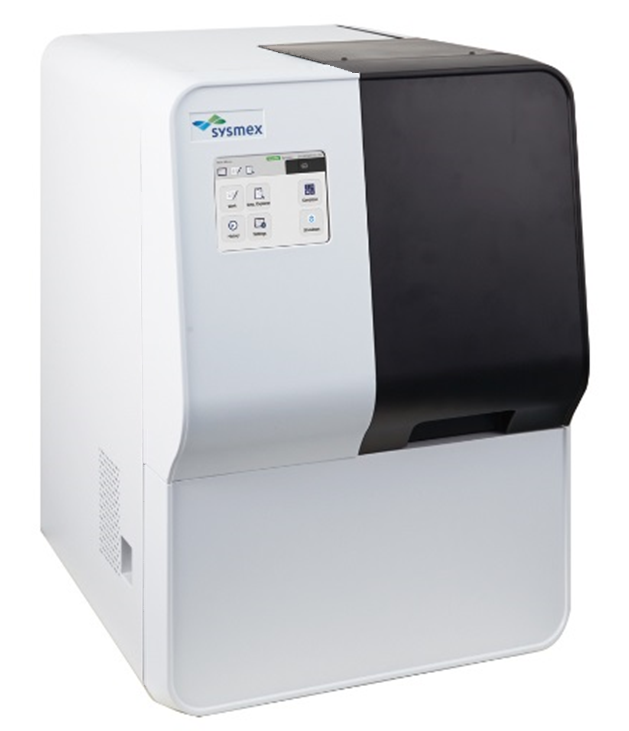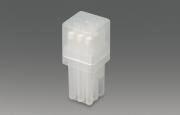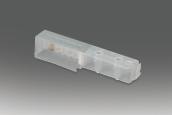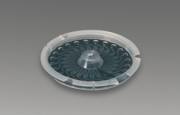News
News
Sysmex, Toppan Printing, and RIKEN GENESIS Commence Launch of Fully Automated System (Research Use Only) to Detect Gene Mutations in Cancer Tissue
-Streamlining the Gene Testing Processes to Standardize the Testing-
Sysmex Corporation (HQ: Kobe, Japan; Chairman and CEO: Hisashi Ietsugu), Toppan Printing Co., Ltd. (HQ: Tokyo, Japan; President & Representative Director: Shingo Kaneko) and RIKEN GENESIS Co., Ltd. (HQ: Tokyo, Japan; President & CEO; Naoto Kondo) have jointly developed the LW-100 Gene Measurement Analyzer (research use only) and a group of related reagents as a system to fully automate testing to detect gene mutations in cancer tissue.
The three companies began providing this system and will move forward proactively with verification of its clinical utility to standardize gene testing using cancer tissue specimens, in the aim of early commercialization of the system for clinical application.
In line with advances in personalized medicine in recent years, the number of cases is growing in which diagnosis and the selection of therapeutic drugs for cancer treatment are being made based on the results of gene testing. Diagnosis guidelines also recommend the use of gene testing.
When selecting post-operative treatment methods for cancer patients, testing is performed to study gene mutations in the cancer tissue resected during surgery. With conventional methods, however, processes such as nucleic acid extraction and gene amplification (PCR) required numerous manual processes, such as the dispensing of samples and reagents. As a result, in many cases the gene testing had to be outsourced to specialized commercial labs, so determining treatment methods took time. The trend toward an early start of treatment calls for in-hospital gene testing and the corresponding standardization of the testing.
Sysmex, Toppan Printing and RIKEN GENESIS entered an alliance in June 2014 aimed at standardizing cancer gene testing. Using Sysmex’s reagent development capabilities and systemization technologies, Toppan Printing’s development technologies of gene mutation detection chip and other consumables, and RIKEN GENESIS’s gene mutation analysis technologies, the companies have pursued joint development of a system to automate gene testing using cancer tissue specimens.
System Features
The system comprises an LW-100 Gene Measurement Analyzer (research use only) and a group of related reagents, including a nucleic acid extraction cartridge and a gene mutation detection chip. The companies have begun launching this system in the research market, providing automated processes including a paraffin solution containing cancer tissue specimens, the extraction and purification of nucleic acid, gene amplification, and the reporting of measurement results.
The system automates the overall testing processes including multiple manual processes, helping to standardize the testing.
Introduced along with the LW-100 is the LW-100 EGFR Research Reagent, a detection chip for the EGFR gene mutation,1 a major biomarker for lung cancer. The LW-100 EGFR Research Reagent uses the BNA clamp PCR method,2 which is employed to amplify the specific gene mutations to be detected and achieves a highly sensitive measurement of EGFR gene mutations.
Future Developments
The companies are introducing the system into the Japanese research market to accelerate initiatives toward commercialization for clinical application and the standardization of gene testing. At the same time, we will form alliances with pharmaceutical companies and medical institutions globally to promote the development of companion diagnostic drugs.
Going forward, Sysmex, Toppan Printing, and RIKEN GENESIS will accelerate initiatives targeting further innovation in gene analysis testing. We also aim to create clinical value in personalized diagnostic technologies toward the selection of treatment methods optimized for individual patients.
Overview of the System
| Product configuration: |
-LW-100 Gene Measurement Analyzer (research use only) -Dispensing chip -Nucleic acid extraction cartridge -EGFR mutation detection chip (LW-100 EGFR Research Reagent) |
|
| Launch: | August 2018 | |
| Target market: | Japan (research market) | |
| Main characteristics: | ||
| ・Simply insert pathology specimens; the instrument automatically handles nucleic acid extraction, purification, analysis and output of results ・Uses a gene mutation detection chip that can measure multiple assays (up to 23 assays) at once ・Achieves highly sensitive measurement using the BNA clamp PCR method ・Sensitivity: 100 or fewer copies (equates to 0.1%, assuming 105 copies for the entire genome) ・Specimen processing time of 3 hours, 40 minutes for one sample, or 8 hours for three samples |
||
Product Photos
 |
||
|
LW-100 Gene Measurement Analyzer (research use only) |
||
 |
 |
 |
| Dispensing chip | Nucleic acid extraction cartridge | EGFR mutation detection chip LW-100 EGFR Research Reagent |
Terminology
| 1 | EGFR gene mutation: The epidermal growth factor receptor (EGFR) is a receptor that handles signal transduction to recognize factors related to cell proliferation. EGFRs exist in numerous cells, but mutations in the genes comprising EGFRs are related to the onset of cancer, as well as cancer infiltration and metastasis. |
|
| 2 | BNA clamp PCR method: BNAs are compounds that have a structure similar to synthetic DNA and form strong bonds to complementary nucleic acids, forming a stable double chain. This BNA quality is used to bond with (clamp) genes other than those being targeted, inhibiting their amplification. In mutation detection, typical PCR has low sensitivity due to background noise from unmutated genes. However, as BNA clamp PCR allows for the selective amplification of only the mutated genes, background noise is curtailed, enabling highly sensitive detection. LW-100 EGFR Research Reagent is manufactured in Japan under a license agreement with RIKEN GENESIS subsidiary BNA Inc. (Japan) (Japanese patent numbers 4731324 and 6242336; corresponding patent applications filed in other countries). EGFR Research Reagent is also protected by US patent number 7294468 and corresponding overseas patents. |
- Information contained in the news release is current as of the date of the announcement,
but may be subject to change without prior notice.
